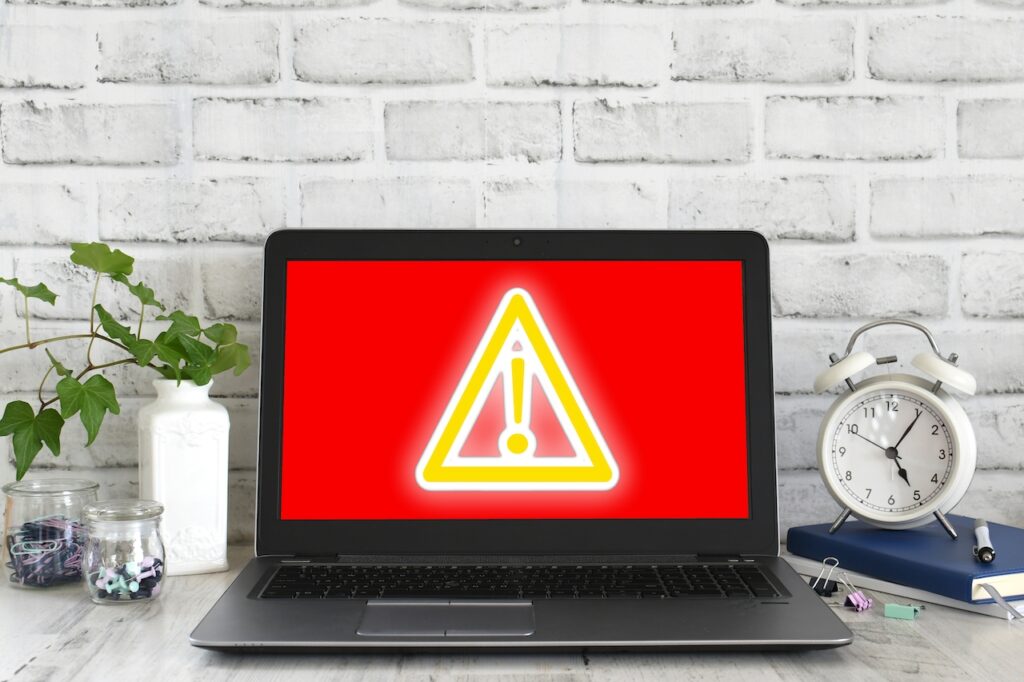The occurrences of data breaches are at an all-time high and continue to rise. In the second quarter of 2022, there were already 52 million reported data breaches. Cybercriminals will target any business they see as vulnerable, which means that every business is at risk. Data breach prevention should be a top priority for businesses.
While no company is 100% safe from a data breach, there are steps you can take to minimize your chances of being breached and to limit the damage if you are breached. Here’s what you need to know about data breaches and how they can impact your business.
What Is a Data Breach?
A data breach is a security incident in which sensitive, confidential, or protected data is accessed and/or disclosed without authorization. A data breach may involve unauthorized access to data stored on a computer or network, or the unauthorized disclosure of data—such as through phishing or malware attacks.
There are many ways a data breach can happen. Hackers may break into a company’s computer systems and steal data. Or, an employee might accidentally leave a laptop containing customer information in a public place. In some cases, a company might experience a data breach as the result of a malicious insider. However it may occur, data breach prevention measures can help reduce the chances of it happening to your business.
What Are Different Types of Data Breaches?
There are many methods by which hackers will gain access to your systems and data. Here are a few of the most common types of data breaches:
Phishing
This is a type of email scam in which the attacker tries to trick the user into clicking on a malicious link or attachment
Malware
Malware is a type of software that is designed to damage or disable computers
Ransomware
Ransomware is a type of malware that encrypts files and demands a ransom to decrypt them
Password Guessing
This is where attackers try to guess common passwords to gain access to accounts
How Can a Data Breach Impact My Business?
Data breaches can have a significant impact on businesses, both large and small. The cost of a data breach can include legal fees, damage to reputation, and loss of customers. In some cases, a data breach can even lead to bankruptcy.
Small businesses are especially at risk because they typically don’t have the resources to have a strong cybersecurity strategy in place. Around 60% of small businesses that experience a data breach go out of business within the first six months of the breach—indicating that data breach prevention should be a top priority.
What Should a Company Do After a Data Breach?
It can be overwhelming for companies to deal with the aftermath of a data breach. However, certain steps should be taken to minimize the damage.
1. Secure Your Operations and Fix Vulnerabilities
The first step is to take steps to secure your operations and prevent further data loss. This may include changing passwords, updating security software, and patching any vulnerabilities in your systems.
2. Notify Affected Parties
Companies should notify individuals and businesses whose data has been compromised as soon as possible. In some cases, state and federal laws require companies to provide notification within a certain timeframe.
Companies should also notify the following:
- Law Enforcement: In some cases, businesses are required to notify law enforcement of a data breach. Contact your local police department for more information
- The Credit Bureaus: If a data breach includes credit or financial information, businesses must notify the credit bureaus to freeze accounts and prevent fraud
- FFIEC: If a data breach results in unauthorized access to or use of sensitive information the financial institution should notify its primary federal or state regulator.
3. Take Steps to Prevent Future Breaches
After a data breach, it’s important to take steps to prevent future breaches from happening. This may include conducting a risk assessment, implementing new security measures, and increasing employee awareness about data security.
Data breaches can have a serious impact on businesses, large and small. By taking the proper steps, companies can minimize the damage and protect their operations.
Data Breach Prevention Tips
The best protection against data breaches is having a data breach prevention plan in place. Here are a few things companies can do:
- Implement Strong Security Measures: Companies should implement strong security measures, such as firewalls, intrusion detection systems, and encryption, to protect their data.
- Conduct Employee Training: Employees should be trained on data security and privacy policies and procedures. They should also be made aware of the consequences of violating these policies.
- Limit Access to Sensitive Data: Companies should limit access to sensitive data to only those employees who need it for their job duties.
- Perform Regular Security Checks: Companies should perform regular security checks, such as vulnerability assessments and penetration testing, to identify weaknesses in their security posture.
- Have a Response Plan: Companies should have a plan in place for responding to a data breach. This plan should include steps for notifying affected individuals and cooperating with law enforcement.
Prevent a Data Breach with RESULTS Technology
At RESULTS Technology, we understand the importance of data security and data breach prevention. We offer a comprehensive suite of data security and privacy services to help companies avoid data breaches. Our services include vulnerability assessments, penetration testing, employee training, and more. Contact us today to learn more about how we can help you protect your data.


